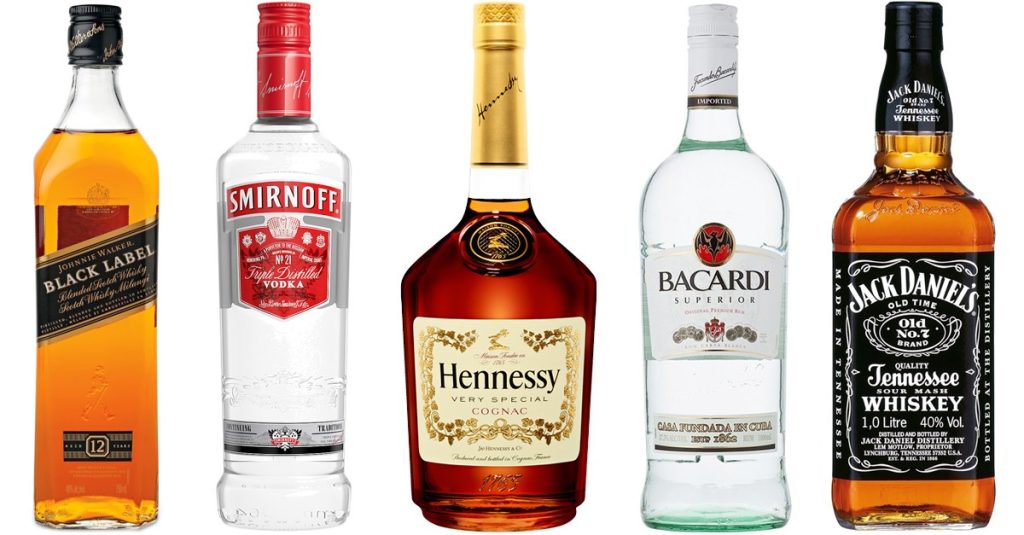From the creation of the world’s first vineyard, to the miracle of turning of water into wine, alcoholic beverages made from fermenting grapes have played a starring role in the Judeo-Christian religions from the very beginning.
Biblical scriptures mention wine more than 500 times, including those who should and should not drink wine, the spiritual transformations, ritual celebrations and supernatural occurrences.
In this article, we will explore the seven most pondered questions about wine and spirits in the bible.

What Was Wine Like During the Time of Jesus?
Wines during biblical times were rich and intense, known as severe wines today. These wines are usually of a crimson or deep golden hue.
Full-bodied wines are more complex in flavor with a richer mouth-feel, with much of the flavor arising from the grape’s skin and stems known as tannins.
It was common in the Old World to cut these severe wines with water ––not only to balance the intensity, but to slow down the alcohol intake. If imbibers did not add water to their wine, they might be labeled a barbarian or brute by their brethren.
By combining ancient grapes with modern techniques, a handful of wineries in Israel and Palestine are attempting to resurrect the style of wines from biblical times.
According to Eliyashiv Drori, an ancient wine researcher at Ariel University in Israel, wines during biblical times were not made exclusively from individual grape varieties, but were more likely blends. Drori has made it his mission to preserve grape seeds found at archaeological digs and has identified 120 varieties of grapes native to the region, with around 20 fit for making wine.
In the valley between Bethlehem and Jerusalem, where Jesus lived and spread the Gospel, there is at least one notable winery that uses ancient native grapes from the region.

Why Is Wine Considered Sacred in Christianity?
The spiritual meaning of wine in the bible takes on many different manifestations. Wine often symbolizes the Blood of Christ, or metaphorically the blood shed by Jesus while he lay dying on the Cross, before his resurrection.
Red wine is poured to commemorate important biblical events, but it can also leave a pretty nasty stain. Many churches today use white wine or juice to avoid a bloody-looking mess.
One of the most famous moments is during the Last Supper, when Jesus tells his twelve disciples that one of them would be his betrayer. They all deny it of course, including Judas.
Luke 22:19-20
“And he took bread, gave thanks and broke it and gave it to them,” explaining, ‘This is my body given for you, do this in remembrance of me.’ ‘This cup is the new testament in my blood, which is shed out for you’.
The bread a symbol of his body and the wine a symbol of his blood being poured out for their sins to be forgiven.
Christians generally recognize the spiritual presence, though denominations differ as to how, where and when Christ is present. Be it physically or metaphorically, wine symbolizes the blood of Christ before his death and resurrection.
New Wine – Hillsong Worship
FAQ
Is new wine stronger than old wine?
Does fresh wine contain alcohol?
Was wine in Bible times alcoholic?
What does the Bible mean when it says new wine?
Does New Zealand have wine without alcohol?
Alcohol Level: <.05% New Zealand is known for its Sauvignon Blanc, and now, imbibers can enjoy one of the country’s signature grapes sans alcohol. What Customers Are Saying: “Best non-alcoholic wine I’ve tasted,” wrote one reviewer.
What is considered moderate consumption of wine?
The World Health Organization (WHO) considers an acceptable level of consumption three standard doses of 120 ml of wine per week for men and two for women.
Where to buy non alcoholic wine?
There’s no shortage of NA wines to try. If you’re wondering where to buy non-alcoholic wines, we can help you there, too. We’ve compiled a list of top-rated bottles on Amazon, Total Wine & More and other online retailers. To make the list, each bottle (only one per brand) needed to have at least four stars or higher.
How does alcohol affect wine?
Alcohol levels in wine are directly correlated with the amount of sugar that developed in the grapes at harvest time: the higher the sugar levels, the higher the potential alcohol. Higher sugar levels don’t mean that higher-alcohol wines are sweeter, though sometimes this is the case.
